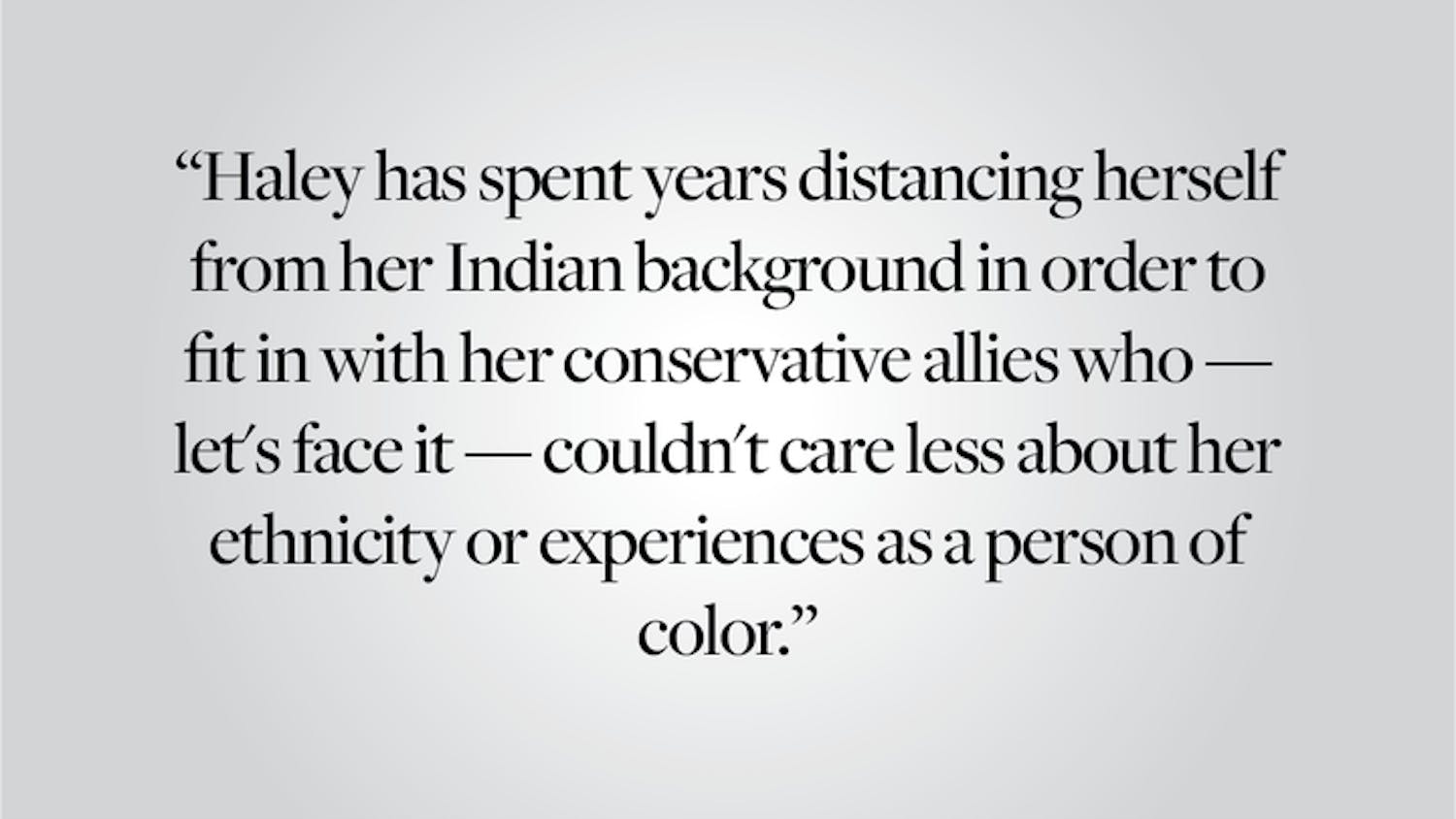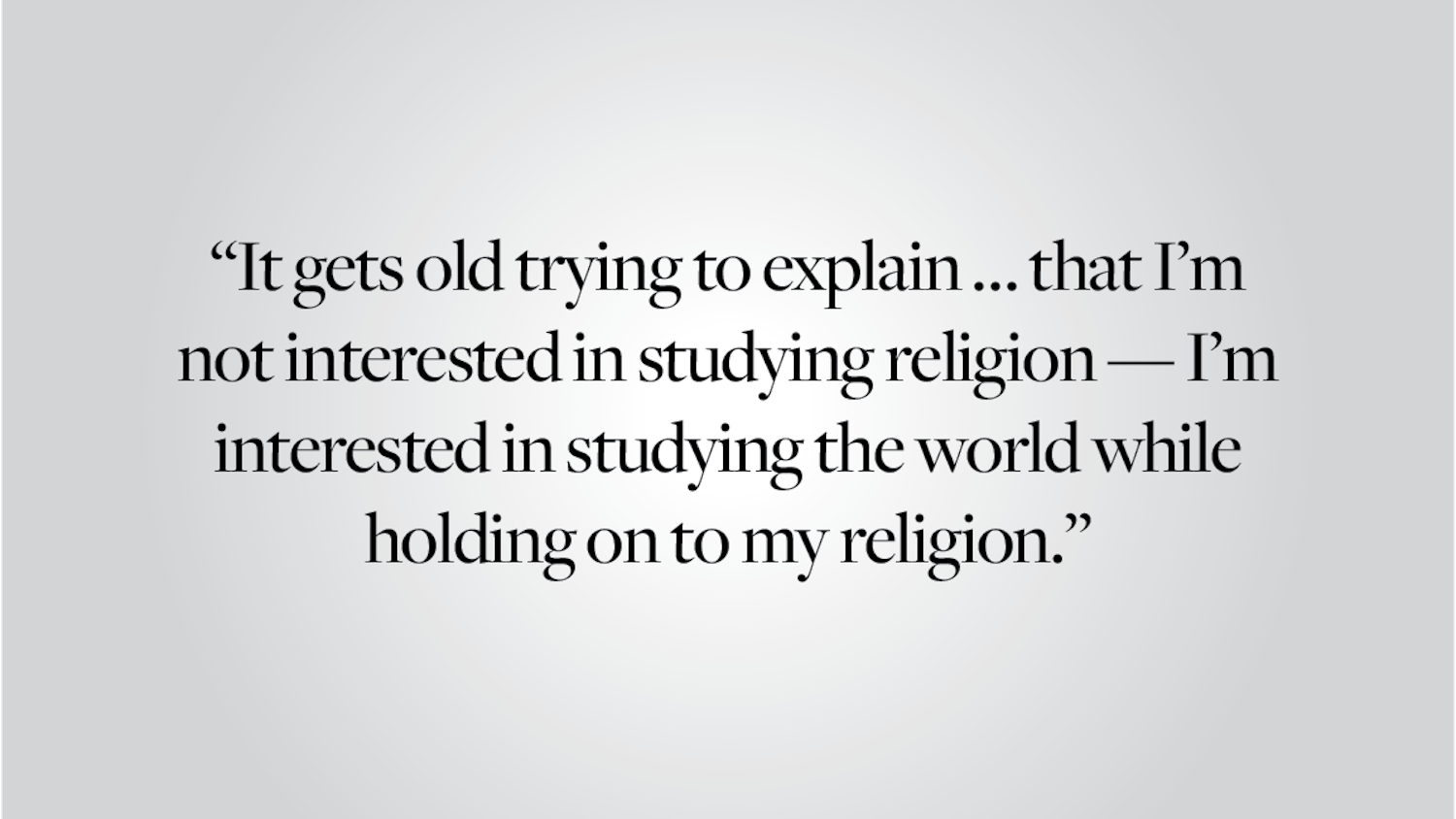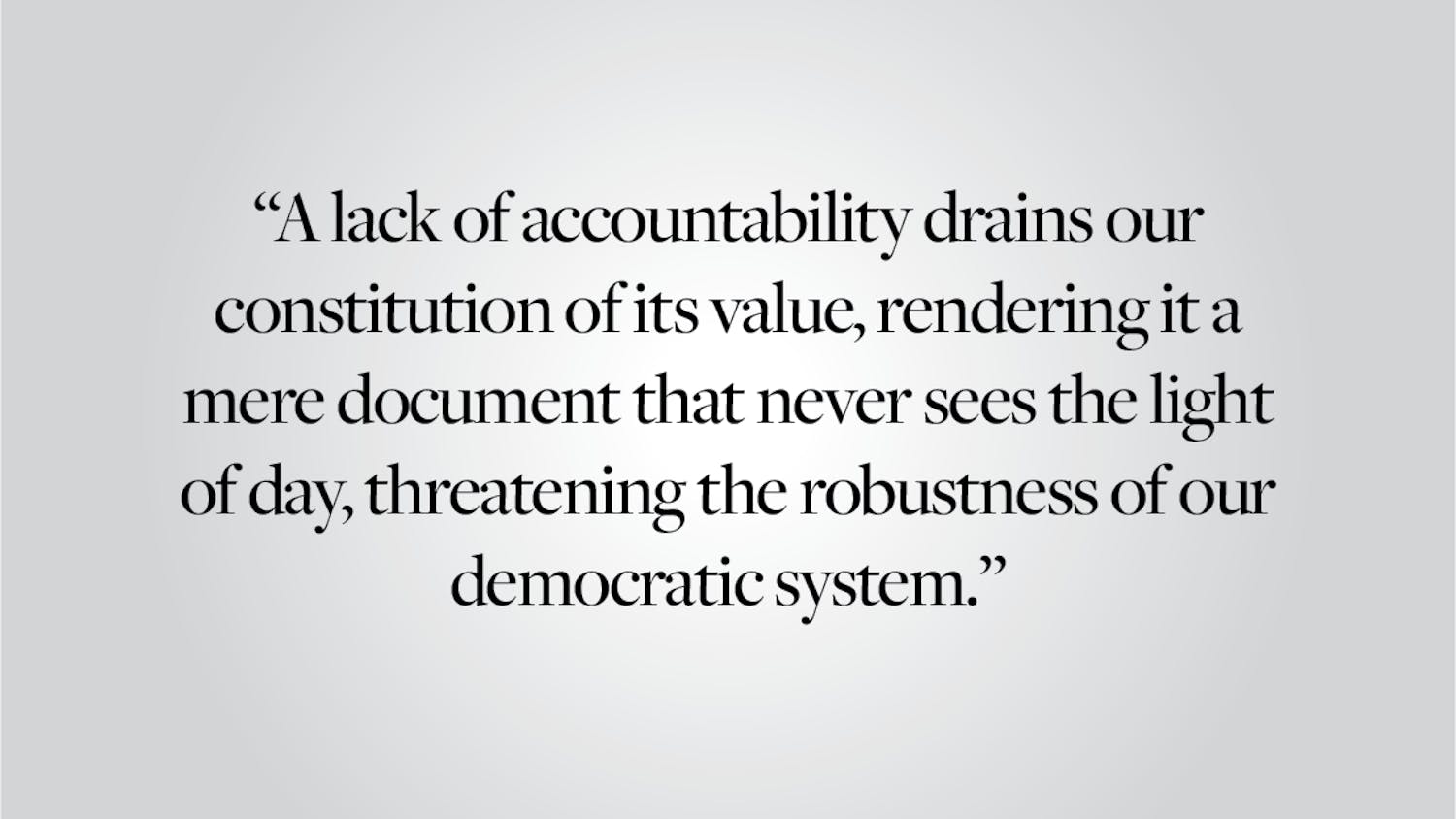Spring Weekend hype hits Brown like a tidal wave after spring break. Invitations for punny pre-games and large after parties circulate social media, CustomInk boxes filled with tank tops inundate the mail room, and Brown finally turns into that wild state school you so admire. Students obsessively check Weather.com hoping that with every refresh of the page, the percent chance of rain (or maybe even snow — who knows at this point?) will drop. We race to get a week ahead on our assignments so we can enjoy what is often referred to as “the best weekend of the year.”
For as much time and energy as we students put into getting ready for Spring Weekend, we seldom consider that the weekend itself can be a tremendous source of stress for other individuals who are part of our community. Students who live with mental health disorders or mental illnesses, have a physical disability, have dealt with addiction or substance abuse or feel threatened or unsafe on this campus may have a vastly different Spring Weekend experience than what makes it onto the Ivy League Story on Snapchat.
It has been estimated that one in four college-aged students lives with a diagnosable mental health disorder, and living with such a disorder may impact one’s ability to enjoy Spring Weekend. Anxiety disorders like social anxiety, panic disorder and agoraphobia are among the most common mental health diagnoses among college students and can be triggered by aspects of concerts that seem benign to people who do not live with these disorders. People with obsessive compulsive disorder or a sensory processing disorder may also feel uncomfortable during Spring Weekend, as they are unable to control their surroundings or factors such as crowds or volume. Post-traumatic stress related to loud, crowded situations and events may also be triggered by events like Spring Weekend. In addition, much of the language around the Spring Weekend hype involves consuming alcohol and other substances — for students recovering from addiction or dealing with substance abuse, this environment can feel triggering and unavoidable.
Students who are able-bodied find it difficult enough to navigate the crowds on the Main Green throughout the concert and much of the weekend. But for students with any form of physical injury or disability, it is even more challenging. Personal space is rarely respected at the concerts, so students with injuries or physical disabilities are forced to be extra conscious not only of their own bodies but of everyone else’s. It is also important to note that students who experience seizures may not be able to attend the concerts due to the lighting.
There is a hyperbolic notion that everyone goes to Spring Weekend, which is not actually the case. For students who have felt threatened by or unsafe as a result of another member of this community for any reason — including sexual assault or violence — the Main Green’s concert environment can feel like a dangerous place. This can be exacerbated by the common experience of losing the friends with whom you entered the concert or strangers entering your personal space and touching your body without consent. It is hard enough feeling isolated in a highly stimulating environment; actively avoiding a threatening person alone in a loud, dark and crowded space adds a whole new level of stress.
Students who do not go to Spring Weekend may feel isolated and disconnected, as no one wants to make his, her or their friends skip “the most fun weekend of the year,” and it appears that everybody is attending these events. The concert music is audible in many campus dorms and common spaces, making it almost impossible to ignore. Though there are alternative events during Spring Weekend sponsored by the Student Activities Office, none of the events take place during the concerts themselves. It would be nice if in lieu of attending Spring Weekend, the University planned workshops, community service projects or a retreat with other students who opt out of the festivities.
Spring Weekend is not a problem or bad in any inherent way. We are not writing to serve as the Grinches Who Stole Spring Weekend. We simply believe that with an event that permeates all corners of campus, it is important to be especially aware, conscious and considerate of our peers for whom this weekend may cause additional anxiety, stress or difficulty. Try not to assume a person is going to Spring Weekend, and if it turns out they’ve decided not to, don’t make it a big deal. For someone who may have difficulty attending Spring Weekend, maybe offer to go with them or be a “safe person” who will assist if anything goes awry. These people are a part of our community and our Brown family. Offering these small efforts will not ruin “the best weekend of the year” and can make someone feel safer.
Charlotte Tisch ’17 and Stefanie Kaufman ’17 can be reached at charlotte_tisch@brown.edu and stefanie_kaufman@brown.edu. Brown Project LETS’s Facebook page has more information regarding alternative Spring Weekend events.
Please send responses to this opinion to letters@browndailyherald.com and other op-eds to opinions@browndailyherald.com.




